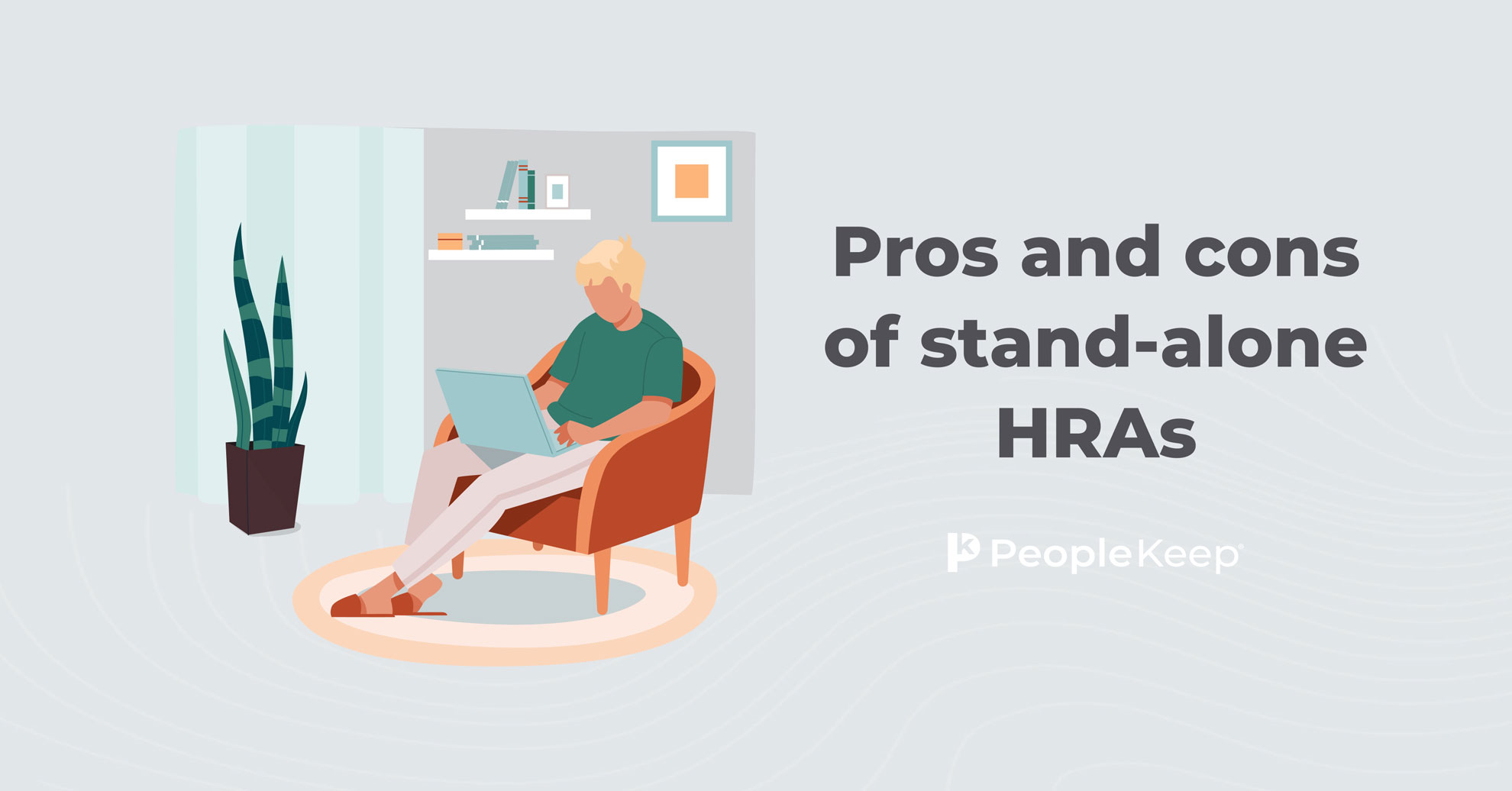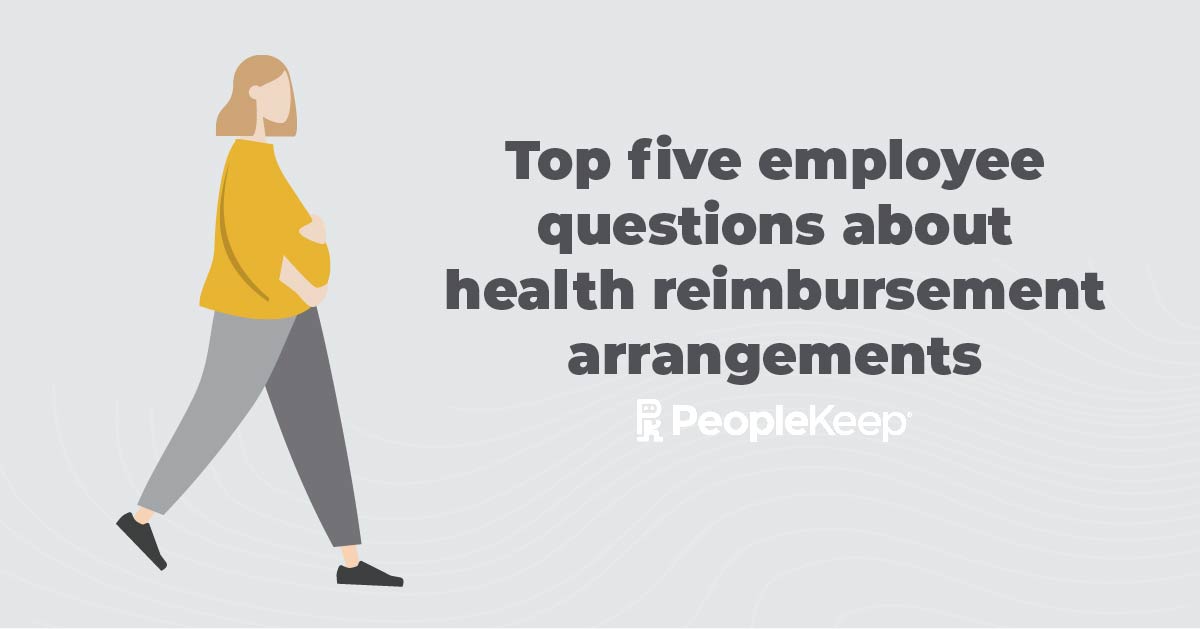HRAs can be simple - 8 essentials you need to know
By Christina Merhar on February 17, 2015 at 7:00 AM
Health reimbursement arrangements (HRAs) are a simple tool used by employers to reimburse employees tax-free for medical expenses.
And yet, because of their varied uses and new reforms, it is easy to be confused about how HRAs work today.
In this article, we’ll first define HRAs. Then, we’ll answer eight essential HRA questions. Understand these eight questions, and you’ll have a solid grasp of what HRAs are and how they can be used today.
HRA Definition
An HRA is an IRS-approved, employer-funded, tax-advantaged plan that reimburses employees for eligible out-of-pocket medical expenses, including individual health insurance premiums.
HRAs are one of several programs authorized by the Internal Revenue Service (IRS) that give individuals tax advantages to offset healthcare costs.
8 Essential HRA questions - answered simply
1. Who can set up an HRA?
Only employers may set up an HRA. HRAs are set up, owned, and financed by the employer.
2. What types of medical expenses can HRAs reimburse?
There are three layers to what an HRA can reimburse: 1) what the IRS says can be reimbursed, 2) what the employer says can be reimbursed (within the IRS rules), and 3) what is compliant with new health reform rules.
First, the IRS defines what medical expenses and health insurance premiums can be reimbursed in Publication 502. Examples include doctor visit co-pays, prescriptions, dental expenses, eyeglasses, and individual health insurance.
Within what the IRS says is reimbursable, an employer can restrict categories further. For example, an employer may set up an HRA to reimburse only premiums.
Lastly, to be compliant with health reform, there are some changes to what an HRA may reimburse. More on compliance in Q&A No. 7.
3. Who can contribute to an HRA?
Only the employer may contribute to an HRA. An HRA cannot be funded through employee salary deduction.
4. How does an HRA work?
With an HRA:
-
The company sets HRA contribution amounts and designs the plan
-
Employees incur medical expenses
-
Employees submit a reimbursement request (usually to a third-party)
-
Once the request is approved, the company reimburses employees tax-free for the approved expense via payroll, check, or direct deposit
5. Are HRA reimbursements tax-free?
Yes. HRA reimbursements are tax-deductible to the employer and tax-free to the employee. However, the tax benefits are limited for some types of business owners.
6. Who can administer an HRA?
To administer an HRA, you need to:
-
Have legal HRA Plan Documents in place, and
-
Have safeguards in place to stay compliant with the IRS, ERISA, HIPAA, COBRA, and PPACA.
Because of these compliance reasons and for ease of use and time savings, most businesses use a third party to administer the HRA. Businesses have two main options for HRA administration: a traditional third-party administrator ("TPA") or an HRA Software Administrator.
7. What are the HRA compliance rules?
HRAs are a type of group health plan. As such, they must comply with Health Reform, and Other Federal Regulations including:
- IRS
- HIPAA Medical Privacy
- COBRA
- ERISA
- PPACA ("Health Reform")
8. What are the different types of HRAs?
There are a few different types of HRAs available today:
-
Group coverage HRA (GCHRA): The HRA is integrated with a group health insurance plan.
-
One-Person Stand-alone HRA: The HRA is not integrated with group health insurance - it is offered as a stand-alone benefit and reimburses individual health insurance and other out-of-pocket medical expenses. Because of health reform changes, stand-alone HRAs are now generally only compliant when there is one participant.
-
Retiree HRA: An HRA designed to reimburse employees only after retirement.
- Qualified small employer HRA (QSEHRA): The QSEHRA is a stand-alone HRA currently available to small businesses with fewer than 50 employees. The QSEHRA reimburses employees for individual health insurance premiums as well as out-of-pocket medical expenses.
- Individual coverage HRA (ICHRA): Allows employers of all sizes to reimburse employees for their individual health insurance premiums and out-of-pocket expenses.
Conclusion
We hope these eight questions and answers have simplified HRAs
Check out more resources
See these related articles

HRAs and healthcare ministry sharing programs
Learn how HRAs and healthcare sharing ministry programs differ. Understand the rules and what expenses can and cannot be reimbursed with an HRA.

Pros and cons of stand-alone HRAs
Stand-alone HRAs can offer flexibility and control over healthcare expenses, allowing employers to customize plans to meet their employees' needs.

HRA FAQs for employees
Have questions about HRAs? This employee-friendly FAQ covers how health reimbursement arrangements work, what they cover, and how to get started.


